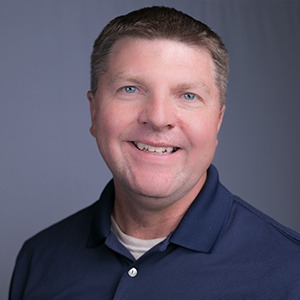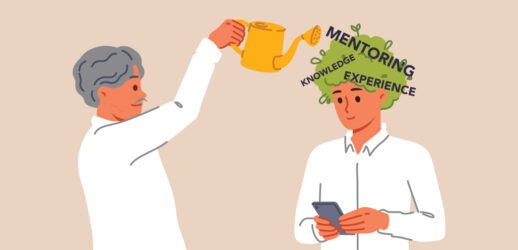MPI Academy shares insights into how planners can master their continuing education journey
Ah, the continuing education conundrum. With so many options out there for credentials, certifications and courses—in an industry where everyone seems to have a mini alphabet behind their name—how do you know which one is right for you, right now?
To find out more about the range of paths planners can take in their continuing education journeys, and why continuing education is so important to this industry, Smart Meetings spoke to Tim Luepke, director of MPI Academy.
Continuing Education with MPI Academy

Once an event producer himself, Luepke now dedicates his time to giving back to the industry with education and advancing careers. His role is to consider what the topics, trends, needs and pain points are for the planners and suppliers out there at any given moment.
The big question always on his mind is, “How can we bring industry education to help them upskill and rescale to do their jobs better?” He continues that the answer is, “That’s in a variety of ways, whether we do that through our live online courses or our in-person events that we hold throughout the year.”
Do It Your Way
MPI Academy’s courses are designed to be flexible for a wide range of needs, wherever planners are in their careers, however much time and however many resources they have.
Certification can range from four-hour courses to 30-minute webinars to sessions at annual events and more. “And then that is a catalyst for them to do whatever is next, and then that will be yet another foot in the door to take their next course with us,” says Luepke.
One of the central focuses of MPI Academy, Luepke says, is to stay on the cutting edge. “The way that adults are learning these days is much different than it was even five or 10 years ago,” Luepke says. “So, when it comes to the way people learn and the way people want to innovate and have fun learning, we need to continue to do that…And in order to stay on top of those trends and developments as planners who have to produce these big events, [they] need to be at the forefront of what those trends and developments are.”
Luepke’s commitment? “It will be fun, innovative and we will make sure they come out of it as better professionals and better human beings as a result of taking our courses and certifications.”
Read More: Leaning into Learning Styles
How the Magic Happens
With such a wide variety of courses available at MPI Academy, the top question is, how do they do it?
Luepke explains that it’s a combination of many things; namely, feedback from learners and stakeholders and insights from subject matter experts. One of the most influential methods through which MPI discovers what its members want to be learning about is through its events, small or large. Each August, MPI holds its Thought Leaders Summit where, behind the scenes, they are identifying the topics discussed most frequently in an effort to identify what the industry is talking about here and now, and how they can curate a course to answer any existing questions about the topic at hand.

“For example, last year, AI was a topic that we really thought was an important one, so we brought in about 35 stakeholders throughout the industry and really dove deep into that,” Luepke explains. “That was the catalyst for the AI Certificate for Event Professionals that we then launched.”
Live events, such as Global Meetings Industry Day (GMID) offer a broader perspective from numbers upon numbers of members. GMID, Luepke says, “is a broadcast to our industry where we really get the feedback and survey results from planners to hear what they really want, and what they are missing.”
Subject matter experts play an important role as well. If a particular person has subject matter expertise in a certain area and offers their expertise to MPI in order to educate others in the industry, it’s pretty much a no-brainer (since MPI members get brainier). Luepke says, “Some of our new certificate courses that we’ve launched this year were really someone coming to us and wanting to partner with us, and we thought it was a good match for the current time in the industry to launch those courses because the topic was relevant and we really felt like there was a good partnership to launch that content off the ground.”
What Continuing Education Path is Right for You?
How and why you choose courses is up to you. Luepke says that the golden rules are to keep an open mind and connect with others at industry events—learning doesn’t all happen in the classroom. “Keep trying new things, both inside and outside your normal job function. A lot of learning can happen outside your normal job function; if you’re an event planner, you may need to lean on an AV production company, so getting out there and meeting at those industry functions is really important.”
MPI Academy’s Credentialing Courses
Luepke told Smart Meetings about some of the most exciting courses that MPI Academy has recently debuted and is soon to debut, so we’re here to give you the inside scoop.
AI is a pretty unbeatable course topic these days. Because of its rapid rise and the continuing discussion around it, MPI has just debuted its “AI-Enhanced Event Professional” course.
Neurodiversity, and how to properly create a positive experience for neurodiverse attendees, is another big-ticket item. The MPI course that equips event professionals with the skills they need to do so, Event Welfare Champion: Neurodiversity & Experience Design, is a product of a partnership with a subject matter expert. Megan Henshall, strategic solutions lead, global events at Google, co-lead of Google Xi Days and one of the developers of The Neu Project, worked with MPI to develop a course focused on neurodiversity and experience design to equip event professionals with the knowledge they need to properly host events that are accessible for neurodiverse audiences.
Read More: Neuroinclusion: Events for Everyone
 A shining example of just how wide a range MPI Academy’s courses cover is its recently debuted Event Psychology Strategist course, created in partnership with Victoria Matey. Matey is an event psychologist, so this course, Luepke explains, is all about the science behind how people make choices, applying behavioral science, neuroscience and psychology to event planning.
A shining example of just how wide a range MPI Academy’s courses cover is its recently debuted Event Psychology Strategist course, created in partnership with Victoria Matey. Matey is an event psychologist, so this course, Luepke explains, is all about the science behind how people make choices, applying behavioral science, neuroscience and psychology to event planning.
Read More: Mental Health at Meetings: Engage Your Attendees with Wellness Activities
Luepke says it’s an incredibly interactive course; the learner progresses through different modules to think about everything event professionals do through the lens of behavioral science. “So, as you think about an event, what is your entering behavior? What is your exiting behavior?” Luepke says of what the course teaches. “This course will help you develop a framework to think through that.”
The CMM
And of course, there’s MPI’s big credential: the Certificate in Meeting Management (CMM). The program is designed for those who work more on the business end of meetings, typically at a director level—they manage people, manage a budget and have at least seven to 10 years in the industry.
Throughout the four-month course, they embark on a collaborative experience with peers and faculty to develop a case study along with the advanced learning from the program. Currently, there are about 1,500 CMMs.
Continuing Education Resources for New Planners
Credentials and certifications aren’t just for those who have been building their careers for years; MPI Academy has taken steps to offer resources for new and emerging meeting professionals too, notably with its Emerging Meeting Professional (EMP) program.
Meant to serve as a precursor to the esteemed Certified Meeting Professional (CMP) designation offered through Events Industry Council (EIC), the EMP underwent its soft launch about two years ago as a partnership with faculties at a number of universities. “Learners can be a junior or senior in college, or someone who is in their first year or first few years in the industry,” says Luepke. “It’s a shorter version of the CMP—just a few weeks, with some competency-based work and a final examination. It’s a way for those just coming into the industry to set themselves apart.”
So far, there are about 200 to 300 EMPs, and he expects the number to grow.
Read More: Empowering Future Planners
The Continuing Education Advantage
 So, the courses sound interesting. Taking the time to pursue continuing education feels empowering. But besides making you feel good, what’s the point?
So, the courses sound interesting. Taking the time to pursue continuing education feels empowering. But besides making you feel good, what’s the point?
The bigger picture is that in an ever-evolving industry (these days, faster than ever), continuing education sets apart those meeting planners who have taken the time to curate a certain expertise for themselves and have expanded the skillset they’ll draw from event after event to make each the best and brightest; as a plus, that skillset makes them more marketable to jobs they may apply to in the future.
Luepke says, “This industry just needs to have continuing education because, whether it’s audio-visual, whether it’s something like AI that’s coming into place as a forefront, even things like food allergies or programming for neurodivergent attendees, which maybe weren’t discussed as much in the past, but are really important to the success of events as you look at all the needs attendees have.”
The benefits of courses abound. If you’re a CMP, or you’d like to become one, all of the MPI Academy certificate courses offer CE credentials that can be applied towards the CMP or CMP renewal.
Read More: CMP Spotlight Series
Motivate to Innovate!
“We all need to be lifelong learners,” Luepke says. For those looking into pursuing continuing education, whether it’s to add one to the list or you’re just getting started, Luepke reminds learners that it’s a marathon, not a sprint: “Take your time in doing what you think is really important, because each one is different depending on where you’re at in your career…We’re all busy professionals, and the challenge that comes up most is being too busy; you’re always on site visits, you always have something to do. But at some point, you have to put a stake in the ground. We can always push it to the side, but a personal commitment to growth and development is what’s going to bring someone through to the other side of a credential or certificate program.”




